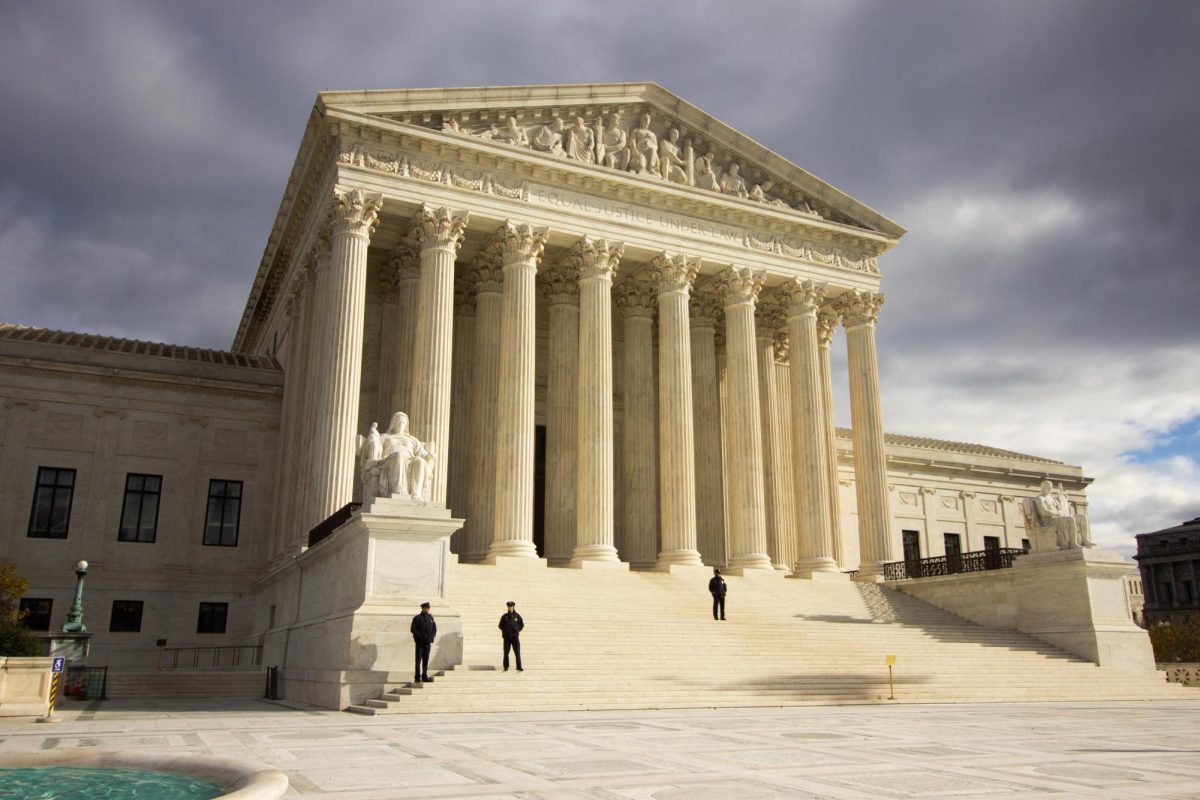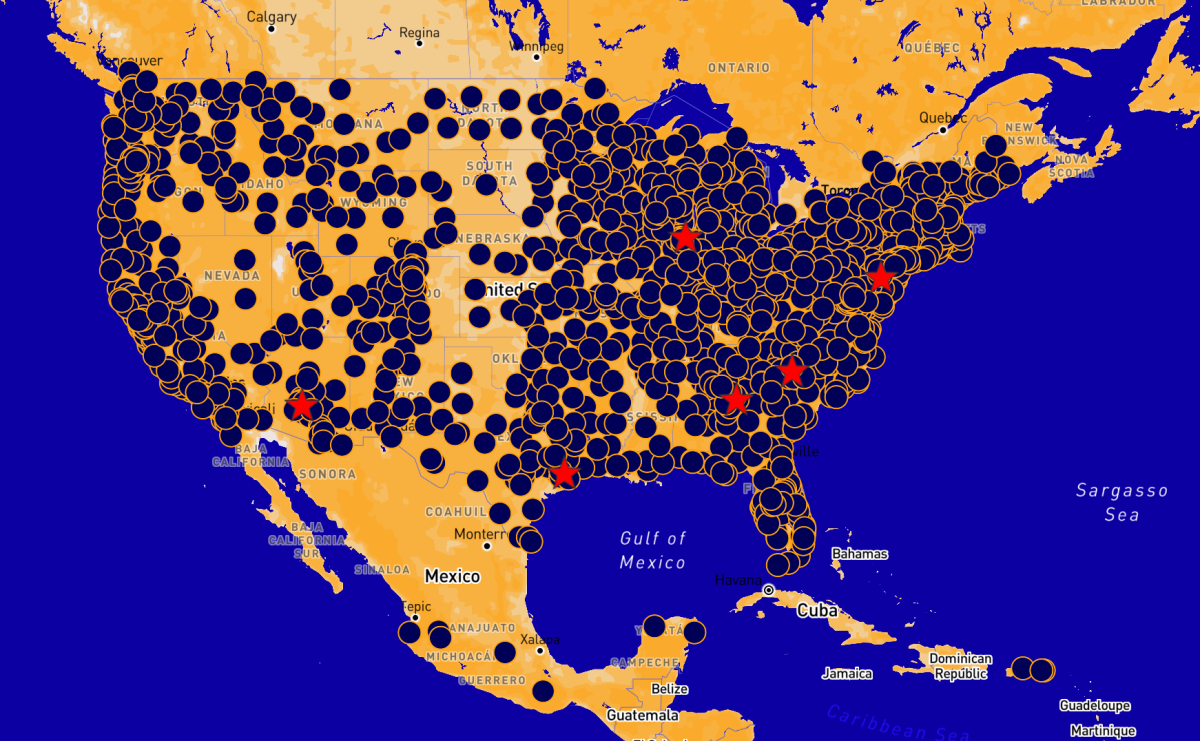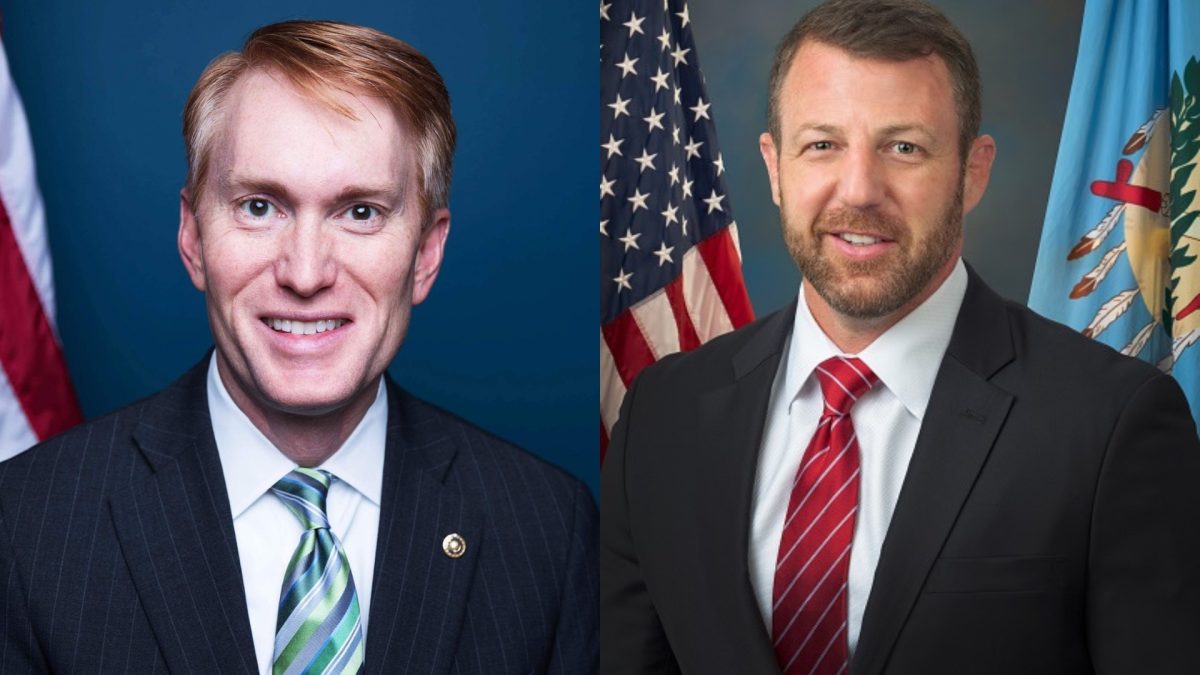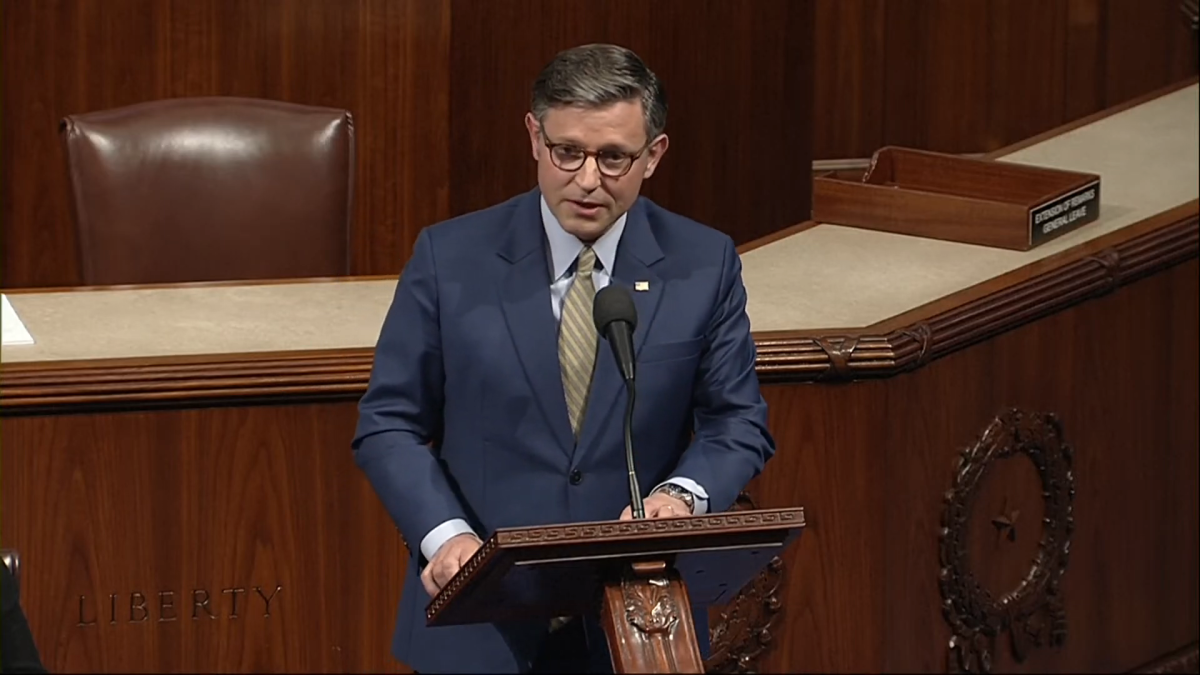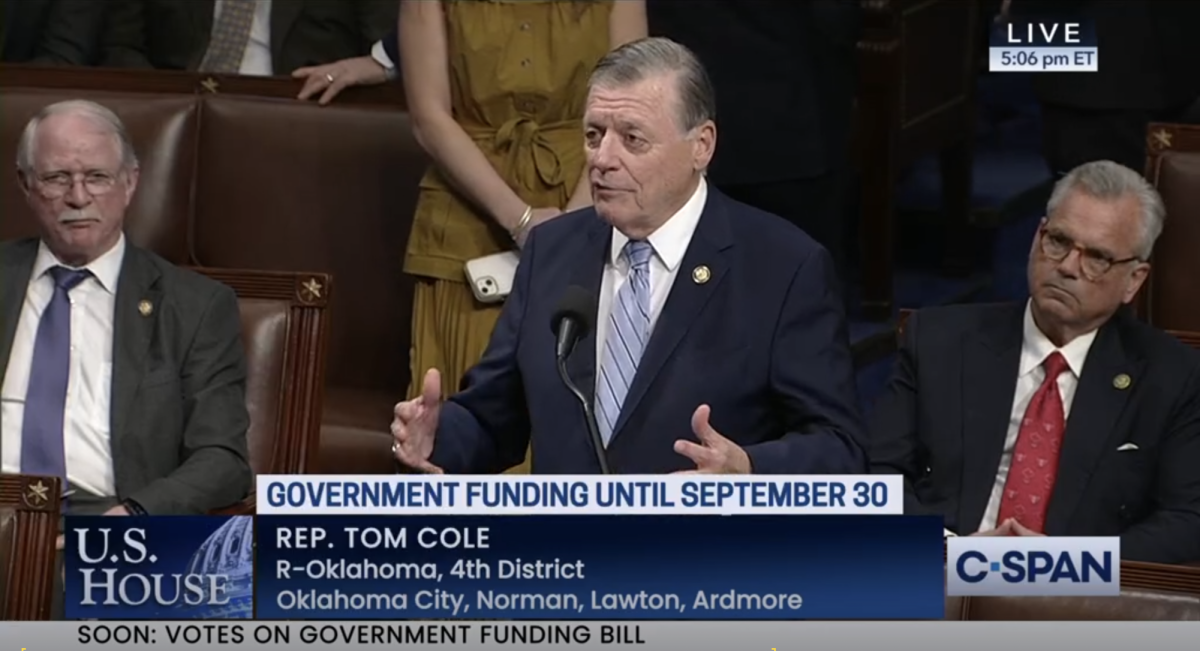Oklahoma Attorney General Gentner Drummond, the Oklahoma Republican Party and all but one member of Oklahoma’s congressional delegation have joined on amicus briefs in support of former President Donald Trump’s appeal of the Colorado Supreme Court’s decision to remove him from the state’s primary ballot.
Rep. Frank Lucas is among 92 Republican members of Congress whose names were absent from the amicus brief coordinated by Sen. Ted Cruz (R-TX) and Majority Leader Steve Scalise (R-LA).
“I rarely sign on to amicus briefs,” Lucas said. “I have in the past. Honestly, I don’t remember why I’m not on that one.”
On Jan. 11, Lucas endorsed Trump in a post on X, formerly Twitter. Though Lucas has vocally supported Trump in the past, he never officially endorsed him in either of his two previous campaigns, despite Trump endorsing Lucas in 2020.
“President Trump will stop illegal immigration, end runaway inflation and roll back Joe Biden’s disastrous, ideological assault on Oklahoma’s values,” Lucas wrote in January. “I’m proud to endorse him and look forward to working with him to deliver for Oklahoma.”
The U.S. Supreme Court has never ruled on a case involving Section 3 of the 14th Amendment. Super Tuesday is a month away, and the court is set to hear oral arguments in the Trump v. Anderson case on Thursday.
On Sept. 6, eligible Colorado electors Norma Anderson, Michelle Priola, Claudine Cmarada, Krista Kafer, Kathi Wright and Christopher Castilian filed a petition in Denver District Court, claiming Trump is disqualified as a valid candidate under the 14th Amendment.
According to Section 3, “No person shall be a senator or representative in Congress, or elector of president and vice president, or hold any office, civil or military, under the United States, or under any state, who, having previously taken an oath, as a member of Congress, or as an officer of the United States, or as a member of any state legislature, or as an executive or judicial officer of any state, to support the Constitution of the United States, shall have engaged in insurrection or rebellion against the same, or given aid or comfort to the enemies thereof. But Congress may by a vote of two-thirds of each House, remove such disability.”
The petition called for Trump’s removal from the primary ballot and any future ballot, and urged Colorado Secretary of State Jena Griswold to refrain from taking any action that would allow Trump access to the primary ballot.
“Petitioners bring this action now to protect the rights of Republican and Independent voters to fully participate in the upcoming primary election by ensuring that votes cast will be for those constitutionally qualified to hold office, that a disqualified candidate does not siphon off support from their candidates of choice, and that voters are not deprived of the chance to vote for a qualified candidate in the general election,” the petition read.
After a five-day trial, Denver District Court Judge Sarah Wallace ruled Section 3 did not apply to Trump and ordered Griswold to place Trump on the primary ballot, despite ruling that Trump’s actions on Jan. 6, 2021, qualified as having “engaged in insurrection.”
Both parties appealed the case to the Colorado Supreme Court, whose unsigned opinion affirmed in part and reversed in part the district court order with three justices dissenting. The opinion held that Congress does not need to pass implementing legislation to enforce Section 3 as it is “self-executing,” affirmed the district court order regarding Trump’s actions on Jan. 6, but reversed the district court regarding Section 3’s application to Trump.
The court barred Griswold from listing Trump on the state’s primary ballot, calling it a “a wrongful act,” but stayed its ruling until the Supreme Court issues an opinion.
“We do not reach these conclusions lightly,” the Colorado Supreme Court’s opinion read. “We are mindful of the magnitude and weight of the questions now before us. We are likewise mindful of our solemn duty to apply the law, without fear or favor, and without being swayed by public reaction to the decisions that the law mandates we reach.”
Since Trump appealed the case to the Supreme Court on Jan. 3, interested parties have filed 34 amici briefs in support of Trump, three in support of the Anderson litigants and 14 in support of neither party.
Echoing the end of Abraham Lincoln’s Gettysburg Address, Trump’s appeal argued the Supreme Court should agree to hear the case because the Colorado Supreme Court has no authority under Section 3 to prevent voters from casting ballots for their presidential candidate of choice.
“In our system of ‘government of the people, by the people, and for the people,’ Colorado’s ruling is not and cannot be correct,” the appeal read. “This court should grant certiorari to consider this question of paramount importance, summarily reverse the Colorado Supreme Court’s ruling, and return the right to vote for their candidate of choice to the voters.”
Trump’s appeal argued the Colorado Supreme Court misapplied Section 3 and usurped Congress’ authority in its enforcement.
“The question of eligibility to serve as president of the United States is properly reserved for Congress, not the state courts, to consider and decide,” the appeal continued. “By considering the question of President Trump’s eligibility and barring him from the ballot, the Colorado Supreme Court arrogated Congress’ authority.”
The Cruz-Scalise amicus brief argued that Congress must pass legislation for the provisions of the 14th Amendment to be enforced. The brief also claims the Colorado court’s “malleable and expansive view” of the phrase “engage in insurrection” would lead to retaliation against political opponents by abusing Section 3.
“The Colorado Supreme Court’s decision severely intrudes on those congressional powers first by allowing enforcement of Section 3 without congressional authorization, and then by concluding that Section 3 authorizes a state to de-ballot a candidate,” the brief read.
Trump’s appeal also debated definitions, arguing Section 3 does not apply to the former president as he “took a different oath than the one set forth in Section 3,” he was not “an officer of the United States” when the oath was taken and the presidency is not an “office under the United States.”
The Colorado electors’ brief to the Supreme Court took aim at Trump’s arguments, saying he “fails to even acknowledge (much less to rebut) the most damning evidence against him” in reference to Trump’s actions on Jan. 6.
“Section 3 does not give a free pass to insurrectionist presidents; they are ‘officers’ because they hold an ‘office,’” the Anderson brief read. “And states’ broad authority to regulate presidential elections allow them to exclude constitutionally ineligible candidates from the ballot.”
Maine Secretary of State Shenna Bellows is awaiting the Supreme Court’s opinion in the Trump v. Anderson case before deciding whether to withdraw, modify or uphold her decision to ban Trump from that state’s primary ballot. Bellows was the first to do so before Trump appealed the case to Maine’s Superior Court.
Denying Trump’s request to stay the proceedings, Superior Court Justice Michaela Murphy remanded the case back to Bellows with instructions to take no further action until after the Supreme Court opinion.
If the Supreme Court rules against Trump and upholds the Colorado ruling, Trump’s certification to the Illinois primary ballot might be reversed. On Tuesday, the Illinois Election Board unanimously voted to certify Trump to the ballot.
Maine’s primary elections are set for March 5, while the Illinois primary is March 19. Without Trump on the ballot, former U.N. Ambassador Nikki Haley is set to be the presumptive Republican presidential nominee.
Gaylord News is a reporting project of the University of Oklahoma College of Journalism and Mass Communication. For more articles by Gaylord News go to GaylordNews.net.

